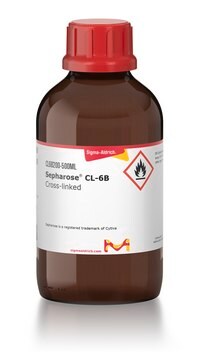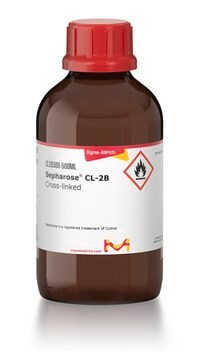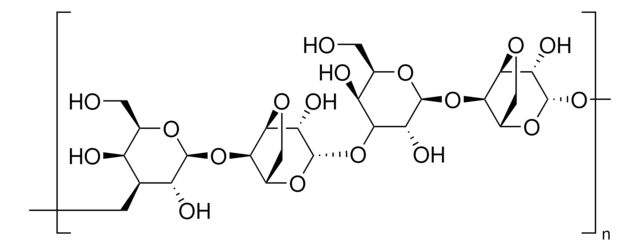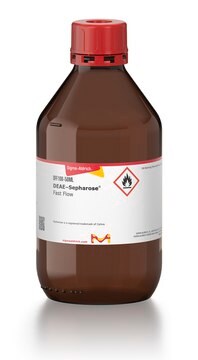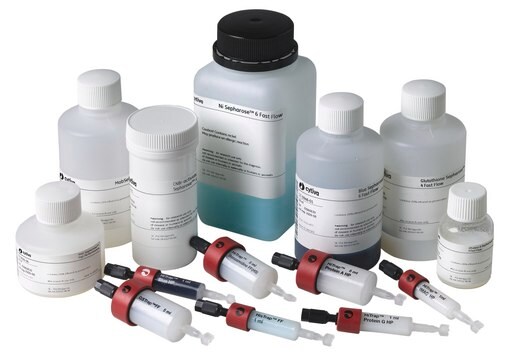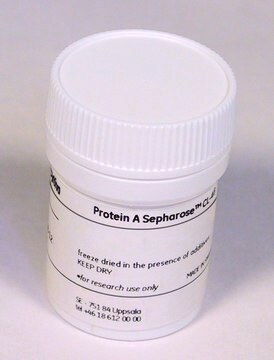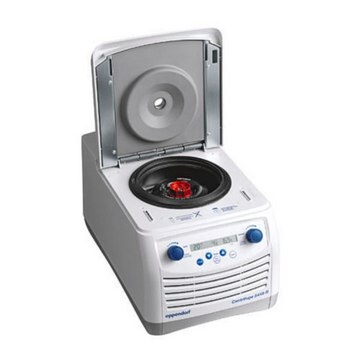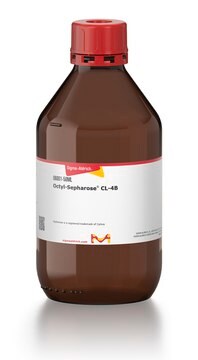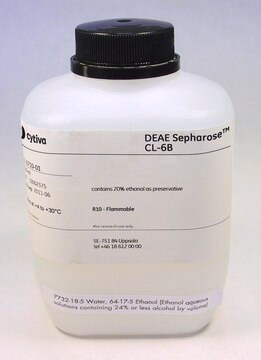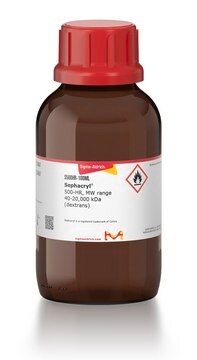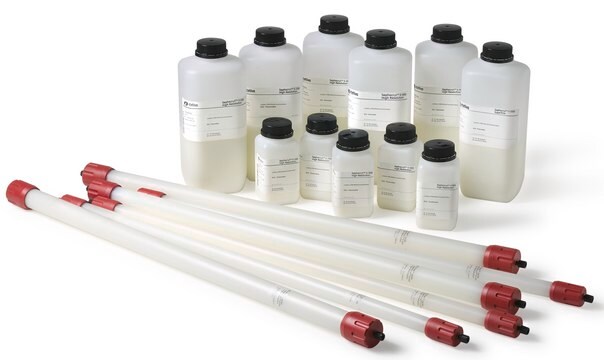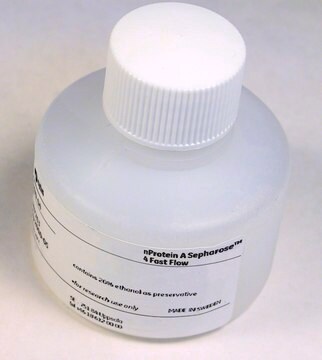GE17-0150-01
Sepharose™ CL-4B
Cytiva 17-0150-01, pack of 1 L
About This Item
Recommended Products
feature
autoclavable Autoclavable, 20 min at 120°C in pH 7
packaging
pack of 1 L
manufacturer/tradename
Cytiva 17-0150-01
matrix
4% agarose
particle size
45-165 μm
cleaning in place
2-14
working range
3-13
Looking for similar products? Visit Product Comparison Guide
General description
Sepharose™ is a bead-formed agarose-based gel filtration matrix. Sepharose™ is available with 3 different agarose contents; 2, 4, and 6%, designated Sepharose™ 2B, Sepharose™ 4B and Sepharose™ 6B respectively, Both Sepharose™ and Sepharose™ CL have broad fractionation ranges which makes them suitable for characterizing or cleaning-up samples containing components of diverse molecular weight.
Sepharose™ CL gels are cross-linked derivatives of Sepharose™ 2B, Sepharose™ 4B and Sepharose™ 6B. The cross-linked form of Sepharose™ is chemically and physically more resistant than Sepharose™ itself, offering the same selectivity with better flow characteristics. Cross-linked Sepharose™ gels are resistant to organic solvents and are thus the choice for separations in organic solvents.
Features and Benefits
- 4% cross-linked agarose gel filtration media.
- Proven base matrix for coupling affinity ligands
- Higher degree of crosslinking improve matrix stability
Storage and Stability
Analysis Note
Legal Information
Signal Word
Warning
Hazard Statements
Precautionary Statements
Storage Class Code
3 - Flammable liquids
Certificates of Analysis (COA)
Search for Certificates of Analysis (COA) by entering the products Lot/Batch Number. Lot and Batch Numbers can be found on a product’s label following the words ‘Lot’ or ‘Batch’.
Already Own This Product?
Find documentation for the products that you have recently purchased in the Document Library.
Customers Also Viewed
Protocols
While ligands contribute significantly to the degree of hydrophobicity of a medium, the matrix can also influence the final selectivity. Chromatography media for hydrophobic interaction are made from porous matrices, chosen for their physical stability, their chemical resistance to stringent cleaning conditions and their low level of non-specific interaction.
Our team of scientists has experience in all areas of research including Life Science, Material Science, Chemical Synthesis, Chromatography, Analytical and many others.
Contact Technical Service
